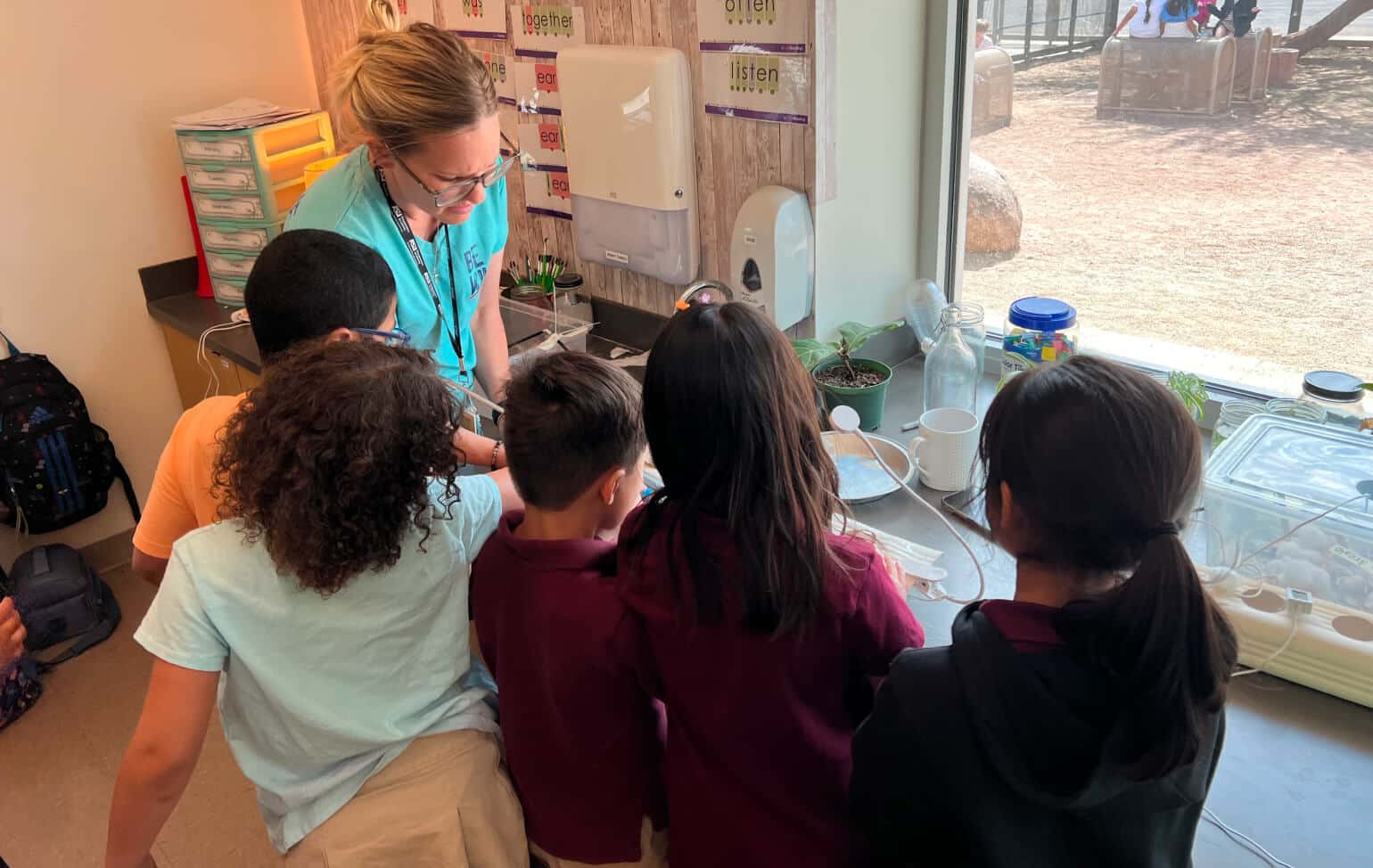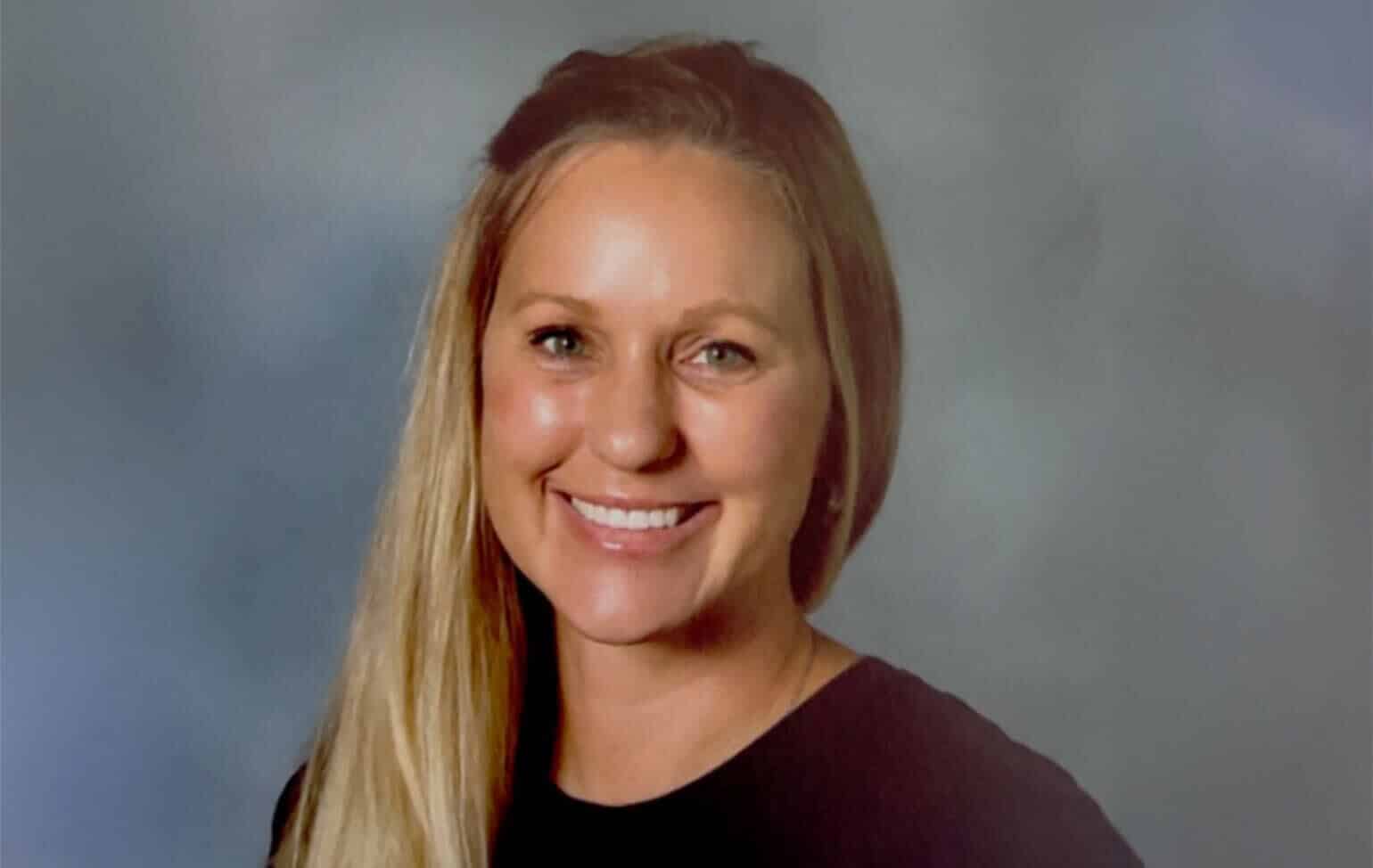When you step into Trinia Wintz’s second-grade classroom at ASU Prep Poly STEM Elementary, students collaborate, solve problems and eagerly share their discoveries in a setting where learning feels meaningful and fun.
At the heart of it all is Wintz, an educator passionate about transforming how students engage with the world through Project-Based Learning (PBL).
With a career spanning multiple grade levels and a track record of revitalizing struggling schools in California, Wintz makes it her mission to inspire a love of learning in all her students. Most recently, she has focused on PBL as part of her development in ASU Prep’s Expert Teacher Track and her ongoing studies in leadership at Northern Arizona University. Her innovative approach creates ripples of change, empowering students and redefining the classroom experience.
Transforming learning with PBL
“Project-Based Learning empowers students to make meaningful, real-world connections while developing a deep sense of empathy and purpose around a central driving question,” Wintz shares. Unlike traditional teaching methods where students passively absorb information, PBL encourages active participation. Students step into real-world roles, tackling complex problems, brainstorming solutions and testing ideas collaboratively. This methodology is how many students learn in university classrooms and is a great skill to master in early education settings.
This shift in learning has a profound impact. “I see firsthand that students aren’t just more engaged; they’re demonstrating deeper comprehension, stronger communication skills and greater ownership of their growth,” Wintz explains. By giving students agency, PBL fosters critical thinking, creativity and resilience, all vital qualities for success in today’s world.
Strategies for success
Wintz’s classroom thrives on a balance of structure and freedom, which is essential for effective PBL. She co-creates class norms with her students each year to foster responsibility and mutual respect, laying the foundation for independence and self-regulation.
Her approach goes beyond teaching content, emphasizing collaboration and leadership. Wintz encourages students to self-select roles like project manager or recorder, promoting accountability and social-emotional skills such as active listening and compromise. “Students quickly realize how much more productive their teams are when everyone has a clear job,” she reflects. “It’s a powerful moment that helps them take responsibility seriously.”
Wintz also incorporates the Stanford Design Thinking framework, which organizes work into structured phases like Empathy, Ideate, Prototype and Test. This method provides direction while encouraging exploration and innovation. “The structure allows the freedom to thrive,” she notes.

Real-world relevance and impact
One standout project in Wintz’s classroom is the hydroponics challenge, where students explore the driving question: “Can plants grow without soil, and how can this benefit communities in the future?” Students design their own hydroponic systems, learning not only scientific concepts but also how to collaborate and present their ideas effectively.
What makes this project special is its impact beyond the classroom. Families started growing fruits and vegetables at home, and one student was so inspired that they requested a hydroponic system for their birthday. “That spark of excitement is exactly what we want learning to feel like,” Wintz says.
For Wintz, making learning relevant to the real world is essential. She believes PBL is more than teaching content; it’s about equipping students with collaboration, empathy and professional communication skills that will serve them throughout their lives. “They’re not just solving problems; they’re learning how to make a positive difference,” she notes. “PBL lays the groundwork for lifelong learning and leadership.”
Collaborating with families and community
Wintz understands the importance of partnerships as a key component of PBL for elementary students. Families often step in to support their children’s learning by providing project supplies or attending presentations. For the hydroponics project, partnerships extended to the local business community. Students worked with True Garden, a company specializing in aeroponic growing systems, whose owner reviews and provides feedback on the students’ final presentations. “Having an expert listen to their ideas reinforces the real-world relevance of their work,” Wintz explains.
Moving forward, Wintz hopes to deepen these connections by collaborating with more businesses and institutions. “My goal is to provide students with more opportunities to connect with local experts, access real-world tools and see how their learning can contribute to their community,” she shares.
Assessment and growth
Wintz uses various assessment tools to measure progress and ensure alignment with state standards. Her methods support continuous learning, from rubrics that evaluate content knowledge and skills to peer feedback protocols like TAG (Tell something you liked, Ask a question, Give a suggestion).
For instance, her students present initial ideas for their hydroponics systems to their peers, using feedback to refine their designs before moving forward. This constant loop of feedback and reflection encourages growth. “Assessment is woven into every phase of PBL, helping students stay focused and move their learning forward,” Wintz explains.
Leading the way
Trinia Wintz’s commitment to innovation and student growth highlights how creative, purpose-driven learning unlocks opportunities for young minds. Her dedication to PBL aligns with the goals of ASU Preparatory Academy to transform education through innovation and personalized approaches, inspiring and equipping all learners to thrive in a complex world.
This shared vision comes to life through groundbreaking initiatives such as the MicroSpark Microelectronics & Semiconductor K–12 Teacher Conference, which equips educators with advanced tools to enhance science, technology, engineering and mathematics (STEM) education. Participating in the Arizona STEM Acceleration Project (ASAP) further underscores a dedication to advancing STEM education where students and educators receive invaluable resources and opportunities to explore STEM fields, sparking curiosity and driving innovation. Additionally, participation in the Sun Devil Sports Analytics Scholars program transforms data science into an engaging, hands-on learning experience.
ASU Prep also offers comprehensive teacher training programs, such as Introduction to Project-Based Learning and Project-Based Learning in a Virtual or Hybrid Learning environment, ensuring educators are empowered to bring innovation into their classrooms.
Together, educators like Wintz and others like her are doing more than preparing students to succeed academically—they’re building a foundation for them to lead with confidence, innovate boldly and pursue their dreams relentlessly. Learn more about ASU Prep.

